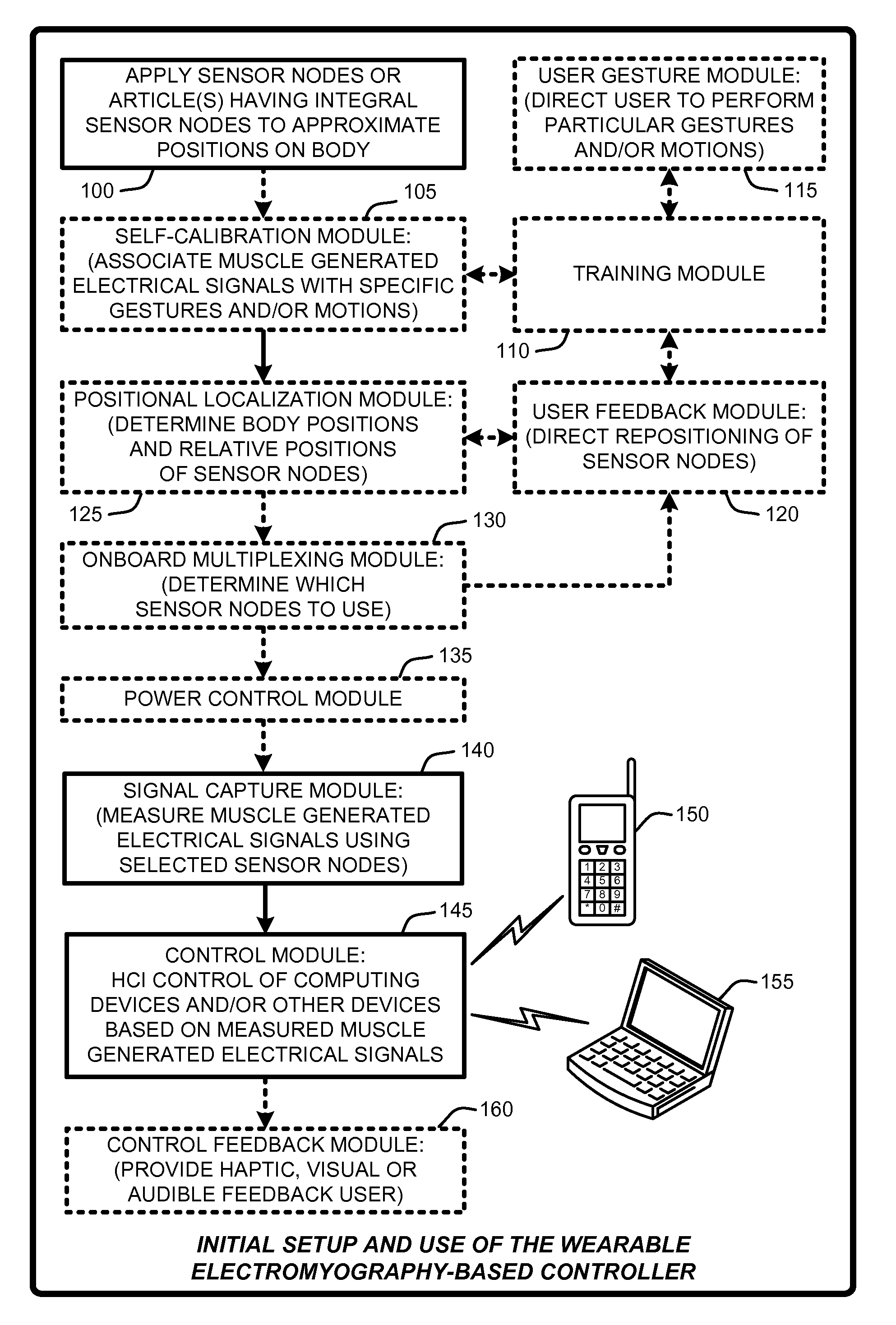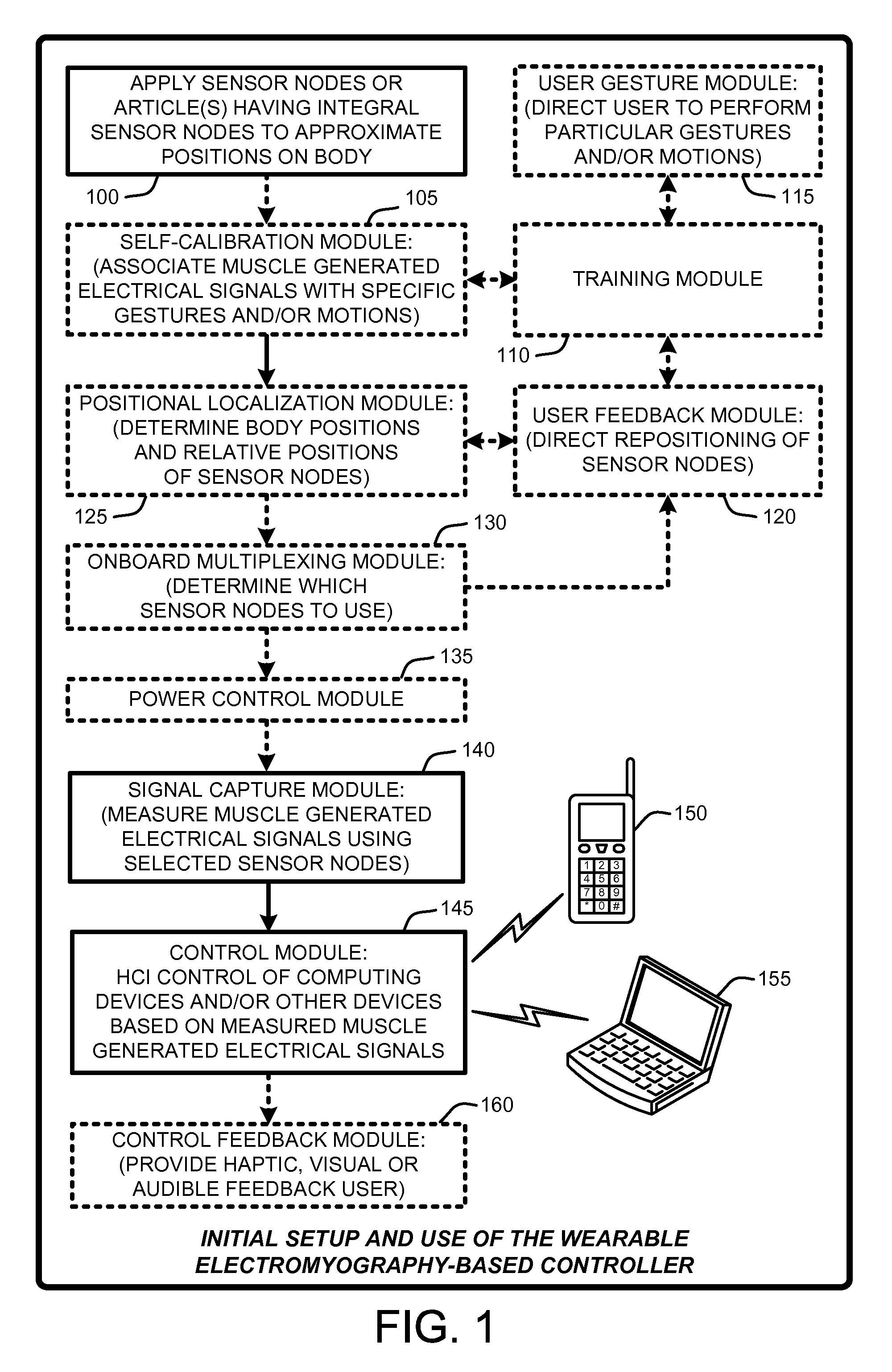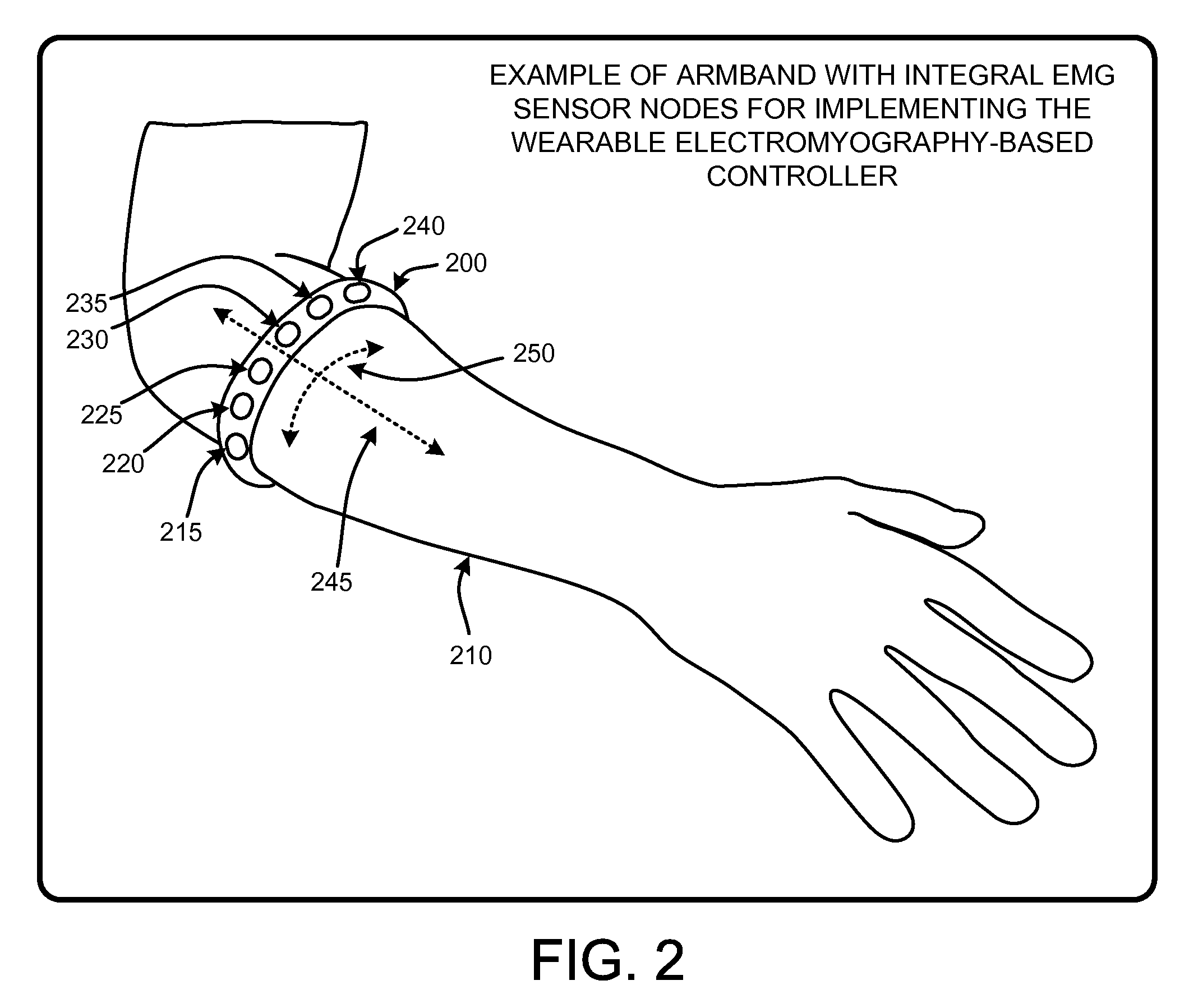Wearable electromyography-based controllers for human-computer interface
a technology of electromyography and human-computer interface, which is applied in the direction of instruments, portable computer details, pulse techniques, etc., can solve the problems of users/patients being unable to move their bodies in certain ways, being considered impractical for human-computer interaction applications, and being subject to many constraints by clinicians
- Summary
- Abstract
- Description
- Claims
- Application Information
AI Technical Summary
Benefits of technology
Problems solved by technology
Method used
Image
Examples
Embodiment Construction
[0028]In the following description of the embodiments of the claimed subject matter, reference is made to the accompanying drawings, which form a part hereof, and in which is shown by way of illustration specific embodiments in which the claimed subject matter may be practiced. It should be understood that other embodiments may be utilized and structural changes may be made without departing from the scope of the presently claimed subject matter.
[0029]1.0 Introduction:
[0030]In general, a “Wearable Electromyography-Based Controller,” as described herein, provides various techniques for measuring user muscle electrical activity to interact with and control one or more computing devices. More specifically, the Wearable Electromyography-Based Controller provides a wearable device having a set of electromyography (EMG) sensor nodes for detecting a user's muscle-generated electrical signals for interacting with and / or controlling general purpose computing devices, applications running on ...
PUM
 Login to View More
Login to View More Abstract
Description
Claims
Application Information
 Login to View More
Login to View More - R&D
- Intellectual Property
- Life Sciences
- Materials
- Tech Scout
- Unparalleled Data Quality
- Higher Quality Content
- 60% Fewer Hallucinations
Browse by: Latest US Patents, China's latest patents, Technical Efficacy Thesaurus, Application Domain, Technology Topic, Popular Technical Reports.
© 2025 PatSnap. All rights reserved.Legal|Privacy policy|Modern Slavery Act Transparency Statement|Sitemap|About US| Contact US: help@patsnap.com



